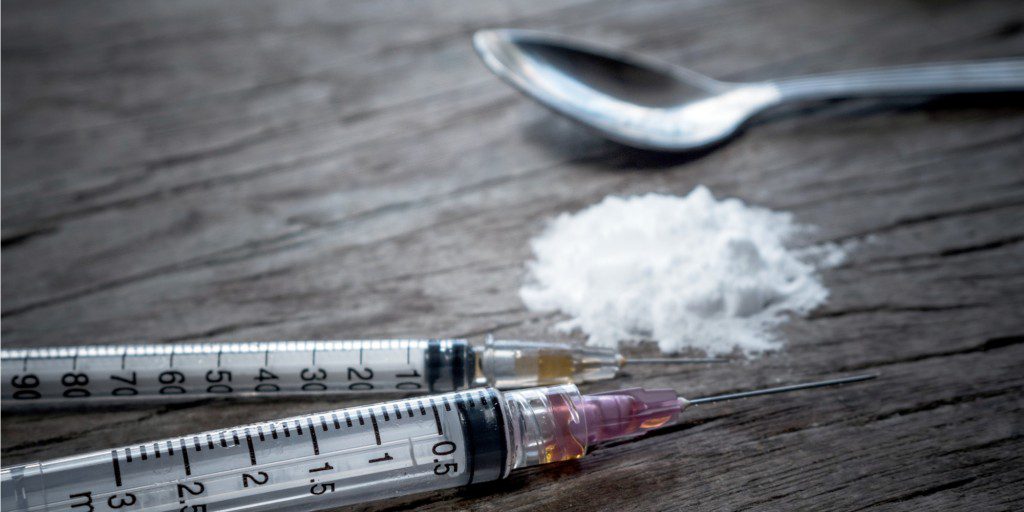Heroin is a powerful illegal opioid that is commonly found on the black market. As seen with many opioids, casual heroin use can escalate to addiction quickly, resulting in drug withdrawals when use is stopped abruptly. In order to stop using heroin, heroin detox in an addiction treatment center is recommended for both comfort and safety reasons. Once completed, the psychological reasons for drug use can be addressed and recovery can begin.
Heroin detox is simply the process of the body removing heroin from the system. However, moving through the detox process is not always so simple. If you’ve been using opioids for some time, withdrawals can range from uncomfortable to dangerous. Further, detoxing can also include intense cravings to use which can derail the entire attempt to quit heroin. One of the benefits of enrolling in a detox center is that the treatment team can minimize discomfort and cravings with medication if desired, keeping you focused on recovery.
Veterans and Opioid Use

Veterans are connected to opioid use in several ways. On the one hand, injuries and chronic pain are common in military careers and narcotic pain relievers are often a first line of defense against this type of discomfort. Alternatively, substance abuse and mental health conditions like PTSD also go hand in hand. This type of self-medication is a pattern with many who have experienced trauma, civilian and veteran alike. Regardless of the reason for beginning opioid use, opioid dependence or addiction is often the result of prolonged exposure to opioid medication. Unfortunately, a shift to illegally acquired opioids like heroin is not uncommon if the medication runs out.
Signs of Veteran Heroin Addiction
Signs of drug use can be easy to miss, even when you’re close to someone. Further, service members may be especially quiet about mental distress and drug use considering the stoic environment the military promotes. In any case, the following observations could be signs of heroin use:
Ready to start your journey to recovery?
- The onset of intense mood swings
- A change in behaviors like sleeping or eating patterns
- A loss of income or change in spending habits
- Change in hygiene
- Track marks from injections
- Burnt spoons, needles, and other heroin paraphernalia
- Intoxication (pinpoint pupils, relaxed facial muscles, or aggression while coming down)
- Drowsiness or fatigue
As tolerance to heroin increases and more of the drug is needed to feel high, the risk of a heroin overdose is elevated. Signs of overdose include blue lips, extreme confusion, unconsciousness, as well as lowered blood pressure and heart rate. Fortunately, the opioid antagonist Narcan (naloxone) can be used to treat an opioid overdose if it is administered in time, but it is not always successful in reversing the overdose.
Heroin Cutting Agents

To complicate matters, the heroin found on the streets today is not pure heroin. Rather, it is cut with additives like sugar, flours, chalks, and powders in order to stretch out the supply and maximize profits. In addition, other addictive drugs like codeine and morphine are also included. Basically, whatever is cheap and easily sourced can be thrown into the mix, including dangerous synthetic drugs like fentanyl. This means that the body has a lot more to detox than pure heroin, which adds to withdrawal symptoms and the risk of overdose.
Heroin Detox and Withdrawal
During heroin detox, the drug is eliminated from a person’s system. When opioid addiction is the culprit, inpatient detox at an accredited addiction facility is the best approach to drug detox. This is so the medical staff can monitor and treat any withdrawal symptoms that could be dangerous. When detoxing from heroin, some possible withdrawal symptoms include:
- Flu-like symptoms
- Gastrointestinal issues (cramps, vomiting, diarrhea)
- Insomnia
- Achiness
- Profuse sweating
Opioid detox can be downright uncomfortable. To combat the severity of heroin detox, medical professionals can prescribe medication to lessen the effects. Examples of drugs commonly used to reduce the impact of heroin detox include methadone, Librium, buprenorphine, and benzodiazepines.
Veteran Substance Abuse Program at Heroes’ Mile

At Heroes’ Mile in Deland, Florida, our veteran rehab program can help you work through conditions like opioid addiction. Our facility starts the heroin addiction treatment process with heroin detox. During this time, we will ensure your safety and comfort around the clock before substance abuse treatment begins.
At Heroes’ Mile, our approach to treating veterans is simple but crucial: to provide mental health and addiction services to veterans, by veterans, so that common ground can be established upfront. Additionally, our Florida veteran rehab provides treatment options to best serve a variety of lifestyles. Examples of these include:
- Medically Supervised Drug and Alcohol Detox
- Residential Substance Abuse Rehab for Veterans
- Partial Hospitalization Program for Veterans
- Intensive Outpatient Program for Veterans
We want you to know that you do not have to suffer alone with addiction. To learn more or to enroll today, call our admissions specialists at 888-838-6692 or fill out our confidential online form. At Heroes’ Mile Deland, we’ve got your six!

